A Coming Out Day Story…
In honor of National Coming Out Day, we are sharing a story of coming out by one of our own: our new intern that we are working with through Cherry Health, Arly!
We hope there is insights gained, parallels formed, and comrodary built through sharing Arly’s story!
Coming out is a daunting task
There are often many influencing factors that come into play when deciding how, when, and who you come out to. For me, coming out as bisexual was considerably easier than coming out as transmasculine/non-binary.
I first publicly came out in an instagram post, with a simple selfie of my wavy hair and a caption reading “I’m as straight as my hair: kind of but not. (pink, purple, and blue heart emojis)”. This was during my senior year of high school, a time of chaos for all those involved, let alone a queer kid in conservative West Michigan.
I faced little backlash or prejudice after coming out as bisexual, nor when I found the label of pansexual to be more fitting.
The following fall was my first semester at GVSU, where I got involved in clubs at the Milton E Ford LGBT Center and met a large group of diverse individuals. The thought of questioning my gender had been sitting in the back of my mind for years at this point, but due to life circumstances, I had to focus on surviving and making it to the next day rather than figuring out my gender. Since I was now in a stable environment and able to explore more opportunities, I was able to properly explore my gender identity and expression. My first dip into such was through Drag Club; the drag persona I developed was outside of the bounds of gender and used they/them pronouns. I heavily denied that I wanted to use they/them pronouns despite the fact that having they/them used for me felt a great deal better than she/her.
After months of internal back and forth, asking questions of non-binary and trans* friends, and learning about gender in my Intro to Gender Studies class, I was able to finally come out to myself, then my small group of friends, then my coworkers and (conservative, religious) family.
The day before Black Friday, I went to a salon after work-only telling people I was getting a haircut. My hair was halfway to my belly button and was known for my long red hair, so it provided a perfect opportunity to slide into my newfound gender identity. The next day, I walked into work, no one knowing that my hair was now pixie cut short with an undercut. Everyone was at our main desk facing the other direction, so I walked in and yelled: “SURPRISE B**CHES”; the number of jaws that dropped was great. I then took the opportunity to say “Along with having considerably less hair, I will now also be using they/them pronouns.” Most of my coworkers and managers were supportive, albeit taking a lot of time to actually start using my pronouns, which ended up becoming a constant battle when going to work.
A couple months down the line, I began using he/him pronouns as well; I explained to people that “there are 3 options, 2 of which are correct- stop using the wrong one.” That explanation worked for some people, for others it took constant reminding, which is tiring for everyone involved.
Being openly transmasculine has presented some interesting interactions, namely questions that would most definitely never be asked of a cisgender person as well as people recognizing me but not putting together that I am in fact the same person they went to high school with/knew growing up.
I present: Stop Asking Trans* People These Questions-Lightning Round
What was your old name/deadname?
Are you having THE surgery?
How do you have sex?
So do you have a d*ck?
So are you gay now?
What bathroom do you use?
All people in the Alphabet Mafia are just that: people.
To treat them otherwise forces them into the uncomfortable position of being otherworldly, alien, and/or othered. This National Coming Out Day, contemplate the previous questions and why they are inappropriate and rude. Look beyond the adjectives and labels we assign, and them as people. Ask them about their interests, hobbies, and aspirations. Get to know them as a person, not just a trans*/queer/gay/enby person, there is more to it.
Meet Arly!




